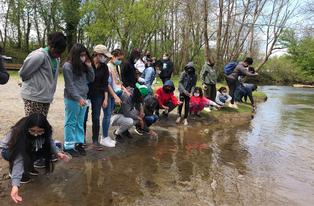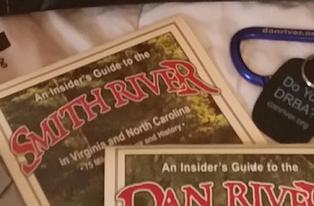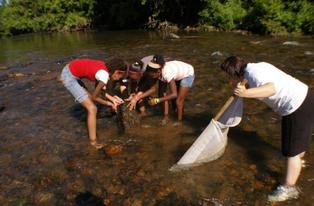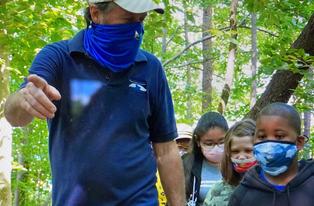Water Monitoring
 Monitoring our waterways is the best way to know what is happening in our watershed. Our rivers and streams are the source of our drinking water and critical to our local economy.
Monitoring our waterways is the best way to know what is happening in our watershed. Our rivers and streams are the source of our drinking water and critical to our local economy.
There are several levels of commitment. You decide how much time and energy you want to give to help keep our waterways protected for future generations.
Why is water quality monitoring important?
Volunteer monitors play an integral role in assessing and protecting the health of our natural resources. Although state departments and watershed organizations, like DRBA, have hundreds of monitoring stations throughout the state, all of the waterways cannot be monitored through those efforts alone. And, with thousands of miles of waterways still needing assessment, volunteer participation is crucial.
What is CWQM?
DRBA is recruiting the Dan River basin’s first line of defense for its rivers and streams, volunteers! The Citizen Water Quality Monitoring program engages citizens of all ages and abilities to protect the Dan River and its tributaries, and to take action to preserve the entire watershed for future generations.
DRBA offers several water monitoring trainings each year. Subscribe to our e-newsletter or check our calendar for a training near you.
Different Types of CWQM Monitors
CWQM River Watch Monitor
No training is necessary. River Watch Monitors help identify negative impacts to our waterways through visual assessment near a waterway or boating down a river. Learn more...
CWQM E.Coli Monitor
Training is required. E.Coli Monitors learn how to sample a waterway to detect the level of bacteria in a river or stream. E.Coli Monitors generously give approximately 1 hour a month of their time to sample and commit to sampling for one year.
CWQM Macroinvertebrate Monitor
Training and a certification test are required. Based on Virginia Save Our Streams guidelines, these CWQM Monitors learn how to sample a waterway for macroinvertebrates to detect the health of a river or stream. Macro Monitors generously give approximately 4 hours, 4 times a year and commit to sampling for one year.












